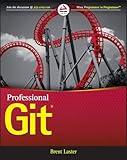Brent Laster
Global author, trainer and founder of Tech Skills Transformations LLC
Hi, I'm Brent Laster - a global trainer and book author, experienced corporate technology developer and leader, and founder and president of Tech Skills Transformations LLC. I've been working with and presenting at NFJS events for many years now and it is always exciting and interesting.
Through my decades in programming and management,I've always tried to make time to learn and develop both technical and leadership skills and share them with others Regardless of the topic or technology, my belief is that there is no substitute for the excitement and sense of potential that come from providing others with the knowledge they need to help them accomplish their goals.
In my spare time, I hang out with my wife Anne-Marie, 4 children and 2 small dogs in Cary, North Carolina where I design and conduct trainings and write books. You can find me on LinkedIn (linkedin.com/in/brentlaster), Twitter (@brentclaster) or through my company's website at www.getskillsnow.com.
Presentations
In this workshop, we'll cover the options, tips, and tricks for using GitHub Copilot to help us identify how to test code, generate tests for existing code, and generate tests before the code.
Join global trainer, speaker, and author of the upcoming book, Learning GitHub Copilot, Brent Laster as he presents material on multiple ways to leverage Copilot for testing your code on any platform and framework.
Have you wondered what options GitHub Copilot can provide for helping to not only write your code, but test your code? In this session, we'll examine some key ways that Copilot can support you in ensuring you have the basic testing needs covered. In particular, we'll cover:
- A quick overview of GitHub Copilot
- Letting Copilot tell you how to get started testing for a new language
- Creating tests for existing code through one-step commands
- Creating tests for existing code with comments
- Creating tests for existing code with explicit prompts
- Validating inputs to functions using Copilot
- Using Copilot to build out tests for edge cases
- Leveraging testing frameworks
- Building tests before the code - TDD with Copilot
Just as CI/CD and other revolutions in DevOps have changed the landscape of the software development lifecycle (SDLC), so Generative AI is now changing it again. Gen AI has the potential to simplify, clarify, and lessen the cycles required across multiple phases of the SDLC.
In this session with author, trainer, and experienced DevOps director Brent Laster, we'll survey the ways that today's AI assistants and tools can be incorporated across your SDLC phases including planning, development, testing, documentation, maintaining, etc. There are multiple ways the existing tools can help us beyond just the standard day-to-day coding and, like other changes that have happened over the years, teams need to be aware of, and thinking about how to incorporate AI into their processes to stay relevant and up-to-date.
Just as CI/CD and other revolutions in DevOps have changed the landscape of the software development lifecycle (SDLC), so Generative AI is now changing it again. Gen AI has the potential to simplify, clarify, and lessen the cycles required across multiple phases of the SDLC.
In this session with author, trainer, and experienced DevOps director Brent Laster, we'll survey the ways that today's AI assistants and tools can be incorporated across your SDLC phases including planning, development, testing, documentation, maintaining, etc. There are multiple ways the existing tools can help us beyond just the standard day-to-day coding and, like other changes that have happened over the years, teams need to be aware of, and thinking about how to incorporate AI into their processes to stay relevant and up-to-date.
In this presentation, we'll cover some of the latest developments and feature additions in GitHub Copilot as rolled out in recent months and at GitHub Universe. Join author, trainer, technologist, and author of the upcoming book “Learning GitHub Copilot” from O'Reilly, Brent Laster to learn what's new and exciting with this popular generative AI tool!
GitHub Copilot continues to evolve as a popular AI coding assistant, adding features and functionality regularly. But there are more significant changes that have been rolled out recently, including wider Copilot integration in the individual GitHub plan for things like indexing repos, pull request and issue summaries. Also, there's new functionality for reviewing code, agent edits, vision features, giving Copilot custom instructions that will apply to every chat, and more!
Books
Professional Git
by Brent Laster
-
Leverage the power of Git to smooth out the development cycle
Professional Git takes a professional approach to learning this massively popular software development tool, and provides an up-to-date guide for new users. More than just a development manual, this book helps you get into the Git mindset—extensive discussion of corollaries to traditional systems as well as considerations unique to Git help you draw upon existing skills while looking out—and planning for—the differences. Connected labs and exercises are interspersed at key points to reinforce important concepts and deepen your understanding, and a focus on the practical goes beyond technical tutorials to help you integrate the Git model into your real-world workflow.
Git greatly simplifies the software development cycle, enabling users to create, use, and switch between versions as easily as you switch between files. This book shows you how to harness that power and flexibility to streamline your development cycle.
- Understand the basic Git model and overall workflow
- Learn the Git versions of common source management concepts and commands
- Track changes, work with branches, and take advantage of Git's full functionality
- Avoid trip-ups and missteps common to new users
Git works with the most popular software development tools and is used by almost all of the major technology companies. More than 40 percent of software developers use it as their primary source control tool, and that number continues to grow; the ability to work effectively with Git is rapidly approaching must-have status, and Professional Git is the comprehensive guide you need to get up to speed quickly.


